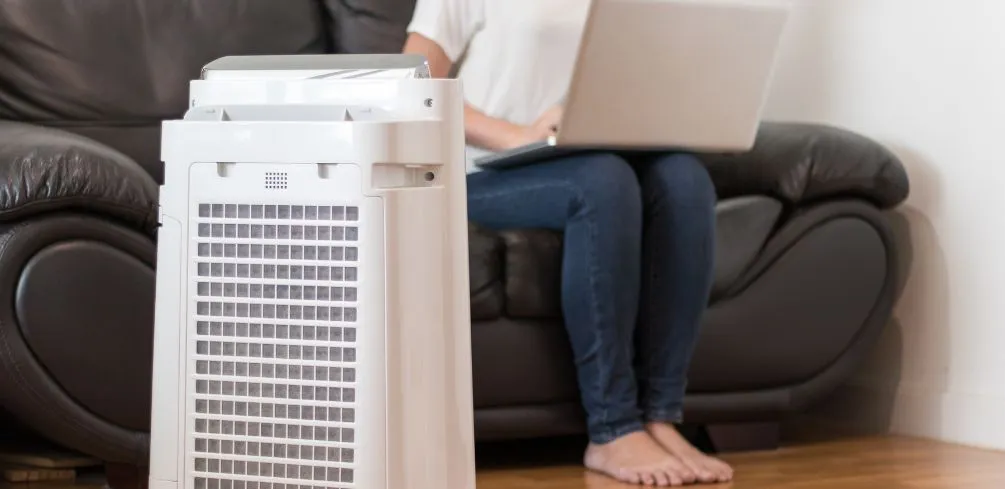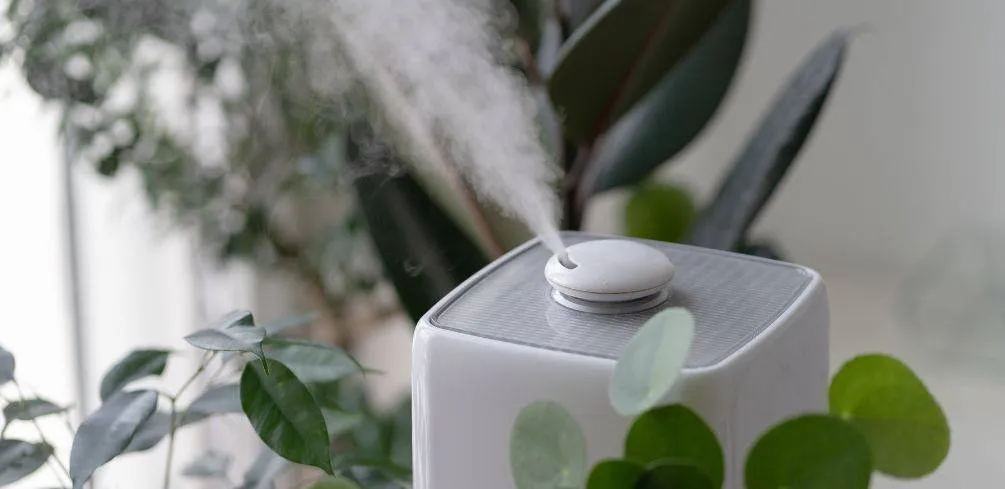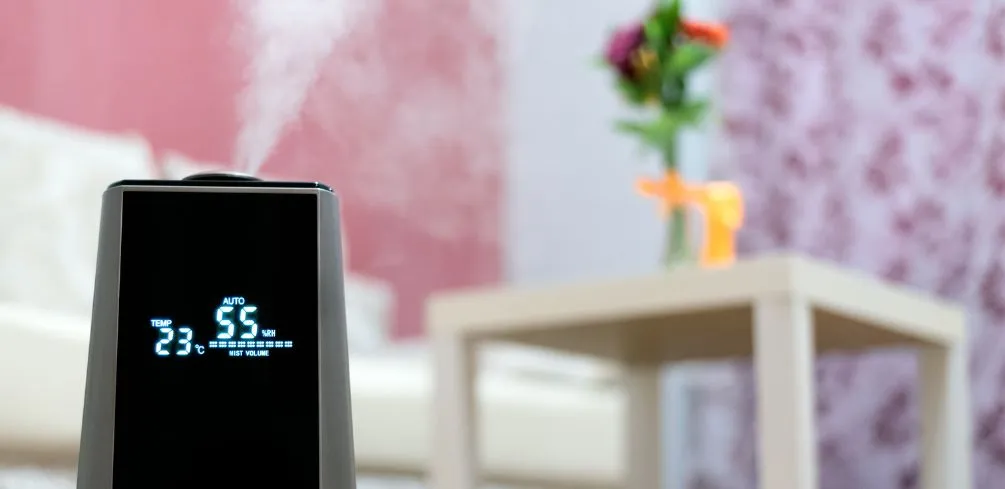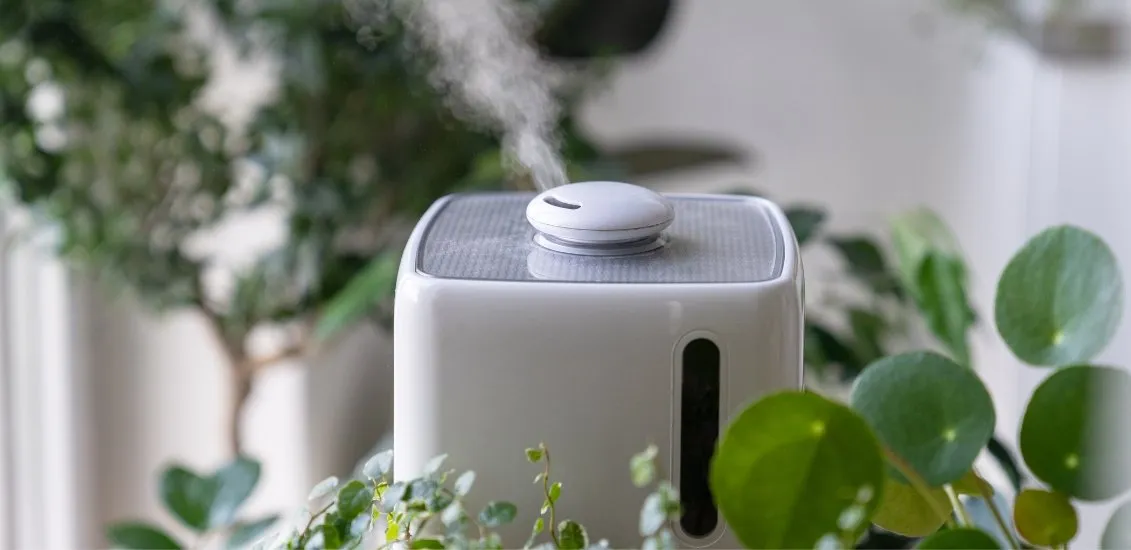As the weather gets colder, the air inside our homes gets drier. This can cause many problems, from static electricity to dry skin and sinuses.
A whole house humidifier can help alleviate these issues by adding moisture back into the air. However, before you run out and buy one, it’s important to understand the pros and cons of these devices.
A whole house humidifier has automatic humidity control; it enhances high-quality indoor air. In addition, a whole house humidifier preserves property, has low maintenance needs, is aesthetically presentable, and has home value addition. Some downsides include high purchase and installation costs, mold, and mildew in the HVAC system.
This blog post will discuss the benefits of whole-house humidifiers and some potential drawbacks. I’ll also provide tips on choosing the right humidifier for your home.
Pros of Whole House Humidifier
Whole-house humidifiers offer many benefits, including:
Automatic Humidity Control
Whole-house humidifiers have sensors that monitor the moisture levels in your home and make adjustments accordingly. This takes the guesswork out of maintaining proper humidity levels, which is important for your health and comfort.
Enhances High-Quality Indoor Air
Dry air can cause a variety of problems, including nosebleeds, dry skin, and static electricity. In addition, dry air can aggravate respiratory conditions like asthma and allergies.
By adding moisture to the air, whole-house humidifiers can help alleviate these problems.
Preserves Property
Both dry air and excess moisture in the air are not friendly to your property. Wood warps as a result of the uneven moisture removal by dry air.
Your wooden furniture, floors, and fixtures will begin to crack in the winter since there is less moisture in the air. This is something you won’t witness when you have a whole house humidifier.
Most portable humidifiers do not have automatic control features. Therefore, if you forget to turn it off, your home will have too much moisture, which can lead to the growth of mold and mildew.
Low Maintenance Needs
Except for ducted humidifiers, which require a yearly change of the evaporator panel filter and a clean-up to remove mineral deposits from the system, HVAC inline whole humidifiers require almost no maintenance.
Furthermore, central humidifiers don’t need to be refilled with water because they are connected directly to a plumbing line. Therefore, whole-house humidifiers provide comfort so you may enjoy your indoor environment without worry.
On the other hand, portable home humidifiers need routine care that includes twice-weekly cleaning and adding an anti-microbial solution to the tank. Depending on your use, you may need to frequently top up the water in their small tanks.
Some whole-house humidifiers come with self-cleaning features, which further reduces the amount of maintenance required.
Aesthetically Presentable
Most whole-house humidifiers are designed to be aesthetically pleasing. They are small and discreet and can be placed out of sight.
This is in contrast to many portable humidifiers, which are often large and bulky.
Home Value Addition
A whole-house humidifier can add value to your home. Because they improve the air quality inside your home, many people are willing to pay more for a home with a whole-house humidifier.
A whole-house humidifier can help keep your home comfortable and reduce energy costs if you live in an area with high humidity. By keeping the relative humidity in your home at a comfortable level, you can avoid the problems caused by excessive moisture, such as mold and mildew.
In addition, whole-house humidifiers can improve indoor air quality by reducing dust mites, which are known to trigger allergies and asthma attacks.
Drawbacks of Whole House Humidifier
There are some potential drawbacks to using a whole-house humidifier, including:
Potential for Mold and Mildew Growth
One potential drawback of whole-house humidifiers is mold and mildew growth. If the humidifier is not properly maintained, mold and mildew can grow in the unit and be distributed through your home’s air ducts.
This can cause serious health problems, especially for people with allergies or asthma.
To prevent mold and mildew growth, it is important to keep the humidifier clean and to empty and refill the water reservoir regularly. You should also use distilled water in your humidifier to avoid mineral buildup, which can lead to mold growth.
Expensive
A whole-house humidifier is more expensive to buy and install than portable units. The price typically ranges from $300 to $1,500, depending on the type and quality of humidifier you choose.
Since they don’t need to be connected to the HVAC system, portable home humidifiers are typically less expensive. After buying it, all you have to do to start enjoying the humid air is assemble it, add water to the basin, and plug it in.
Require Professional Installation
Another potential drawback of whole-house humidifiers is that they require professional installation. This can add to the cost of the humidifier and may not be an option for everyone.
Portable units, on the other hand, are much easier to set up and don’t require professional installation.
Can Cause Excessive Humidity
While whole-house humidifiers can help keep your home comfortable, they can also cause excessive humidity if not properly maintained. Too much humidity can lead to condensation on windows and walls, musty odors, and the growth of mold and mildew.
To avoid these problems, it is important to monitor the humidity level in your home and adjust the humidifier accordingly.
HVAC Air Leak
Air ducts are one of the most common places for air leaks in the home. If your humidifier is connected to your HVAC system, it can cause an air leak and reduce the efficiency of your heating and cooling system.
To avoid this problem, ensure that your humidifier is properly sealed and that there are no gaps or cracks in the ductwork.
House Humidifier FAQs
Final Thoughts
A whole-house humidifier can be a great way to improve the air quality in your home. It enhances high-quality indoor air, preserves property, has low maintenance needs, is aesthetically presentable, and has home value addition.
However, it is expensive, requires professional installation, and can cause excessive humidity if not properly maintained.
When deciding, it is important to weigh the pros and cons of whole-house humidifiers to decide if one is right for you. I hope this article has helped you in that decision.
Please be careful and use at your own risk
None of the authors, contributors, administrators, or anyone else connected with Wild Fog, in any way whatsoever, can be responsible for your use of the information contained in or linked from these web pages.










